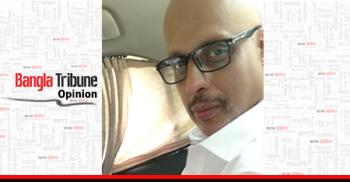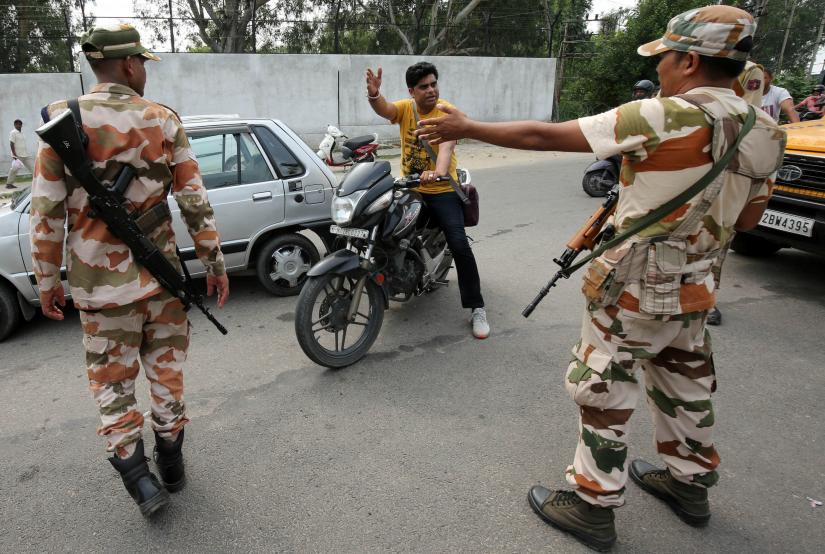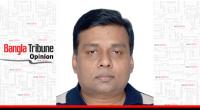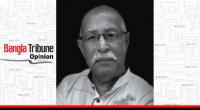 As the tension over the scrapping of the special status of Kashmir continues to evolve, political analysts across the world are wondering what impact the latest move by India would have over any possibility of Indo-Pak détente.
As the tension over the scrapping of the special status of Kashmir continues to evolve, political analysts across the world are wondering what impact the latest move by India would have over any possibility of Indo-Pak détente.
Just after the declaration that certain privileges enjoyed by Kashmir and Kashmiris would be abrogated, the volatile tourist region in India was thrown into total uncertainty.
The immediate result is widespread anger and discontentment but the long term ramifications may jeopardise any chance of peace returning to Kashmir.
As a political observer from a third country, it seems that Narendra Modi’s government is adamant in imposing its will on a region which has been torn apart by conflict and wracked by violence for over six decades.
India’s desire to improve relations with Pakistan under question
There have been Indo-Pak tensions in the past; border skirmishes led to conflict which then paved way for negotiations and an uneasy peace. Come to think of it, India and Pakistan had never been on cordial terms.
Maybe the Pakistani cricket players had Indian women swooning and Indian film stars appeared like demi-gods to Pakistani film lovers but when it comes to politics the swords have been lowered, but never sheathed.
As soon as the revocation of Kashmir’s status was declared, there was uproar in Pakistan with fiery rhetoric being spewed by leaders in Pakistan-controlled Kashmir.
There are a few questions to ask here: if Modi government assessed the implications of the decision, did they take into consideration that with such a move they will not only create a fertile ground for instability in India but also scupper any chances of improving relations with Pakistan?
Then comes the second, more important question: do they actually want better relations with Pakistan or not?
Not too far back, there was the cross border fighter plane infiltration in which both countries claimed to have downed each other’s jets. The rhetoric was belligerent and no side seemed to back down.
But returning the Indian pilot, who parachuted after his jet was hit by anti-aircraft fire, was perhaps a subtle gesture by Pakistan to say “hey, here’s your guy! We treated him well and sending him back; let’s forget the tussle.”
Well, from the cancellation of Kashmir’s special status, India does not seem to be too keen to give priority to Indo-Pak relations. In fact, a US offer to mediate between the two nuclear armed countries with huge egos, has been rebuffed by India.
Maybe, there is a greater strategy at play here. Would it be wrong to state that India is following a path to isolate Pakistan in the region?
The South Asian Association for Regional Cooperation, SAARC, which was formed solely to cement relations among all member states in South Asia, now seems like a paper tiger, just like a reminiscent of the League of Nations after the WW1.
This forum has not been much of a help in defusing an uneasy state between two nations.
Kashmir’s economy will implode
Since 1988, Kashmir has seen prolonged periods of unrest which decimated the local economy. The unemployment rate in the first four months of 2019 reached almost 16 percent, making the region one of the worst in employment generation.
In the tumultuous period of the 80s and 90s, local trade and businesses suffered; with Kashmir facing another upheaval now, commerce will again take a heavy blow.
Kashmiri leaders are saying that this new step by New Delhi was taken to allow people from other faiths to come and settle in Kashmir.  What is being called integration by some is being denounced as a move to reduce Muslim majority in the province.
What is being called integration by some is being denounced as a move to reduce Muslim majority in the province.
Whatever the case is, if one takes the ominous rise of cow vigilantes in India and how Hindu radicals have treated Muslims in recent times, such allegations cannot be summarily rubbished.
Political specialists have said countless times that If Indian government wants Kashmiris to feel Indian, weapons and military force won’t be effective at all.
In fact, this move may create the perfect justification for the emergence of radical groups in Indian territory. Did New Delhi take that possibility into consideration?
Militancy in India is a worry for Bangladesh too because two countries share large border areas. If extremists in India want to harm Indian interests, they may even pick up targets in Bangladesh or other countries in South Asia.
Going against the people of a province, incurring their wrath and imposing decisions on them without proper consultation will have repercussions, which may not be just street protests.
By the latest move, the region will be thrown into a state of tumult for an indefinite period, deepening the disenchantment among the Kashmiri people.
Since proposals to have a third party mediate were repudiated, the imbroglio will linger.
No one will reach for the nuke
Well, that’s for sure. The two countries may have nuclear weapons but the chances of going for the button are remote. The nuclear button is there to work as a deterrent and nothing more. In the end, the sides will have to sit and talk to find a middle ground.
In the meantime, India and Pakistan will continue to make headlines across the world over Kashmir. To be honest, if they did not have nukes, no one would have bothered about their enmity. How many media outlets cover the Armenia-Azerbaijan tensions?
The Indo-Pak face off is a perennial feature of South Asian politics; with the scrapping of Kashmir’s special status, there may be more tensions in the days to come.
If the revocation of Kashmir’s status fuels radicals then who will India blame?
Towheed Feroze is a news editor at Bangla Tribune and teaches at the University of Dhaka.
 Opinion
Opinion
30770 hour(s) 43 minute(s) ago ;
Evening 09:37 ; Saturday ; Apr 20, 2024
Will Kashmir imbroglio trigger new faces of radicalism?
Send
Towheed Feroze
Published : 00:54, Aug 09, 2019 | Updated : 01:03, Aug 09, 2019
Published : 00:54, Aug 09, 2019 | Updated : 01:03, Aug 09, 2019
0 ...0 ...
/hb/
Topics: Towheed Feroze
***The opinions, beliefs and viewpoints expressed in this article are those of the author and do not reflect the opinions and views of Bangla Tribune.
- KOICA donates medical supplies to BSMMU
- 5 more flights to take back British nationals to London
- Covid19: Rajarbagh, Mohammadpur worst affected
- Momen joins UN solidarity song over COVID-19 combat
- Covid-19: OIC to hold special meeting
- WFP begins food distribution in Cox’s Bazar
- WFP begins food distribution in Cox’s Bazar
- 290 return home to Australia
- Third charter flight for US citizens to return home
- Dhaka proposes to postpone D8 Summit
Unauthorized use of news, image, information, etc published by Bangla Tribune is punishable by copyright law. Appropriate legal steps will be taken by the management against any person or body that infringes those laws.
Bangla Tribune is one of the most revered online newspapers in Bangladesh, due to its reputation of neutral coverage and incisive analysis.
F R Tower, 8/C Panthapath, Shukrabad, Dhaka-1207 | Phone: 58151324; 58151326, Fax: 58151329 | Mob: 01730794527, 01730794528


